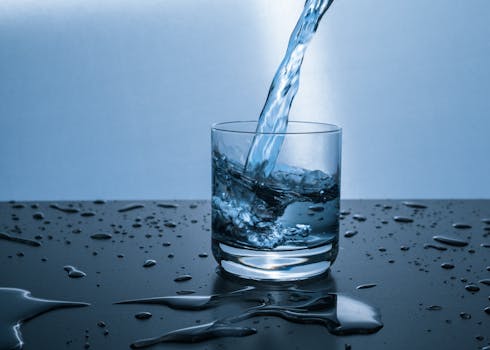The Link Between Hydration and Energy Levels
Hydration, a fundamental aspect of our health, often goes unnoticed in our daily routines. Yet, it holds the key to a more energetic life. The human body is approximately 60% water, and every single cell requires it to function optimally. When we fail to replenish our water reserves adequately, the results are far from subtle: fatigue, lethargy, and a lack of focus.

This article aims to shed light on the profound connection between hydration and energy levels, offering insights into how a simple glass of water could significantly boost your vitality.
The link between hydration and energy levels is not merely anecdotal but backed by scientific evidence. Dehydration can lead to a decrease in blood volume, making the heart work harder to deliver oxygen and nutrients to the muscles and organs. This extra effort can result in feelings of fatigue and low energy. Moreover, dehydration can negatively impact the body's ability to regulate temperature, causing further exhaustion.
Water also plays a crucial role in metabolism - the process by which our bodies convert food into energy. When we're dehydrated, metabolism slows down, leading to decreased energy production. Additionally, dehydration can cause muscle cramps and stiffness, further reducing physical performance.
Not only does hydration affect physical energy levels, but it also has significant implications for cognitive functions. The brain is around 75% water, and even mild dehydration can impair its functions like attention, coordination, and complex problem-solving skills. Studies have shown that people who drink enough water throughout the day have better concentration and are less likely to suffer from headaches and mood swings.
So how much water should one consume for optimal hydration? While the '8x8' rule - eight 8-ounce glasses of water per day - is commonly recommended, individual needs may vary based on factors like age, sex, weight, activity level, and overall health. It's essential to listen to your body's signals - feeling thirsty, having a dry mouth, or experiencing fatigue could all be signs of dehydration.
While water is the best source of hydration, other beverages and foods can also contribute to your daily fluid intake. Fruits and vegetables like cucumbers, oranges, and watermelons have high water content and can help keep you hydrated. On the other hand, caffeinated drinks like coffee and alcohol can lead to increased urination, potentially causing dehydration.
Maintaining optimal hydration is not just about quenching your thirst but ensuring that every cell in your body functions at its best. It's about making conscious choices - choosing water over sugary drinks, carrying a water bottle wherever you go, and understanding that your energy levels are directly linked to your hydration status.
The connection between hydration and energy levels underscores the importance of maintaining a healthy lifestyle. A well-hydrated body is more energetic, focused, and productive. It's time we give water the recognition it deserves in our daily lives - as a vital source of energy and vitality.
As we delve deeper into understanding our bodies and their needs, it becomes clear that something as simple as drinking enough water can significantly impact our overall well-being. The link between hydration and energy levels is a testament to this fact. By prioritizing hydration, we're not just quenching our thirst - we're fueling our bodies, boosting our energy levels, and enhancing our cognitive functions. So next time you feel your energy dipping, remember - a glass of water could be all you need to bounce back.